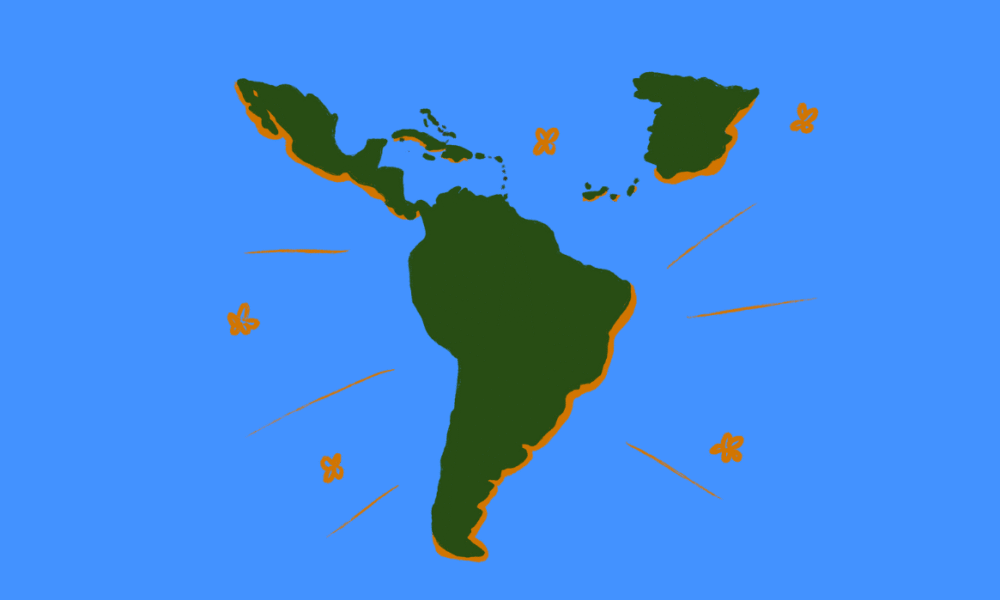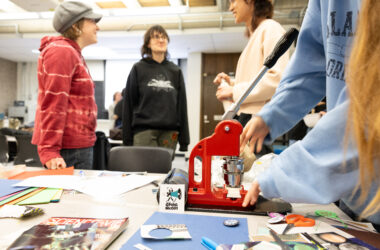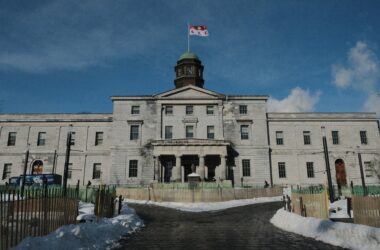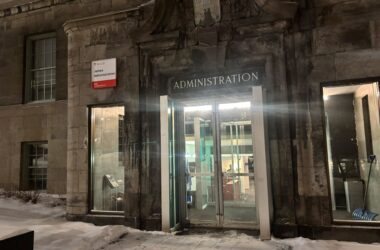On Oct. 24, McGill’s Spanish and Latin American Students’ Association (SLASA) and McGill’s Caribbean and Latin American Studies and Hispanic Studies Association (CLASHSA) collaborated with McGill’s Department of Languages, Literatures, and Cultures to host the ‘Building Bridges: Insights from Hispanic and Latin American Diplomats’ panel, in honour of Latin American Heritage Month. The event provided McGill students, staff, and community members with dialogue on the field of diplomacy, and on ways to embrace Hispanic and Latin American culture in Montreal through organizations like SLASA and CLASHSA.
In an interview with The Tribune, Sophia Newman Jimenez, U3 Arts and Vice President of Diversity, Equity, and Inclusion at SLASA explained why Latin American cultural groups and heritage months are important to diasporic students at McGill.
“SLASA provides a place of friendship, family, and home,” she said. “When you’re with people of the same ethnic background as you, you are able to share the same food, interests, and worldview. For Hispanic Heritage Month, it is really important to celebrate [Latinx people] because we’re a really unique group of people who have a unique way of looking at the world.”
SLASA holds a variety of different events throughout each academic year, including reggaeton parties and Spanish-language-learning social gatherings. This fall, in an effort to expand its offerings, the club hosted Oct. 24’s diplomatic panel. The panel was moderated by Víctor Muñiz-Fraticelli, associate professor in McGill’s Faculty of Law, and featured Victor Manuel Treviño Escudero, Montreal’s Consul General of Mexico, Mauricio Baquero Pardo, Montreal’s Consul General of Colombia, Gerardo Ezequiel Bompadre, Montreal’s Consul General of Argentina, and Carlos Ruiz Gonzalez, Deputy Ambassador of Spain in Ottawa.
Throughout the panel, the main points of discussion included what the daily life of a diplomat and their duties look like. The panel participants also described how their experience in Canada differs from their postings in other places, and the most challenging aspects of their profession, like working to build what Treviño described as “bridges of understanding” with host countries.
Bompadre of Argentina spoke about the continuities and changes of the job.
“It is important to find opportunities for your country and your people and to make your country known [where you are posted],” Bompadre said. “Diplomacy has changed quite a lot, our ancestors of this field had it differently, and now it is less autonomous.”
Specifically, Bompadre noted emergent technological networks as one of the primary changes of the job. In the digital world, diplomats now have more opportunities to receive advice from their nation’s capital on foreign policy decisions.
All four diplomats explained the initiatives they have in place for students, including networks of exchange for undergraduates.
“We found that there is a greater interest for students studying here to come to Spain and study for a year,” Gonzalez said. “The [Spanish] embassy tries to ease the path for them to get in touch with the local people here in order to empower those kinds of agreements.”
The diplomats also explained how they seek to empower all members of the Hispanic community in their respective posts, including students.
“As a member of the foreign service of my country, it is important to empower students after they finish university to join this career and open doors to provide different kinds of advice,” Treviño stated.
Newmann emphasized how students can learn new perspectives on international diplomacy through participating in events like these.
“It is important to look at what diplomacy looks like outside of [just] North America or Europe,” Newmann said. “Diplomacy means something different in the context of Latin America, and I think this event provides students with the ability to see those differences, and how that plays out in international relations.”









